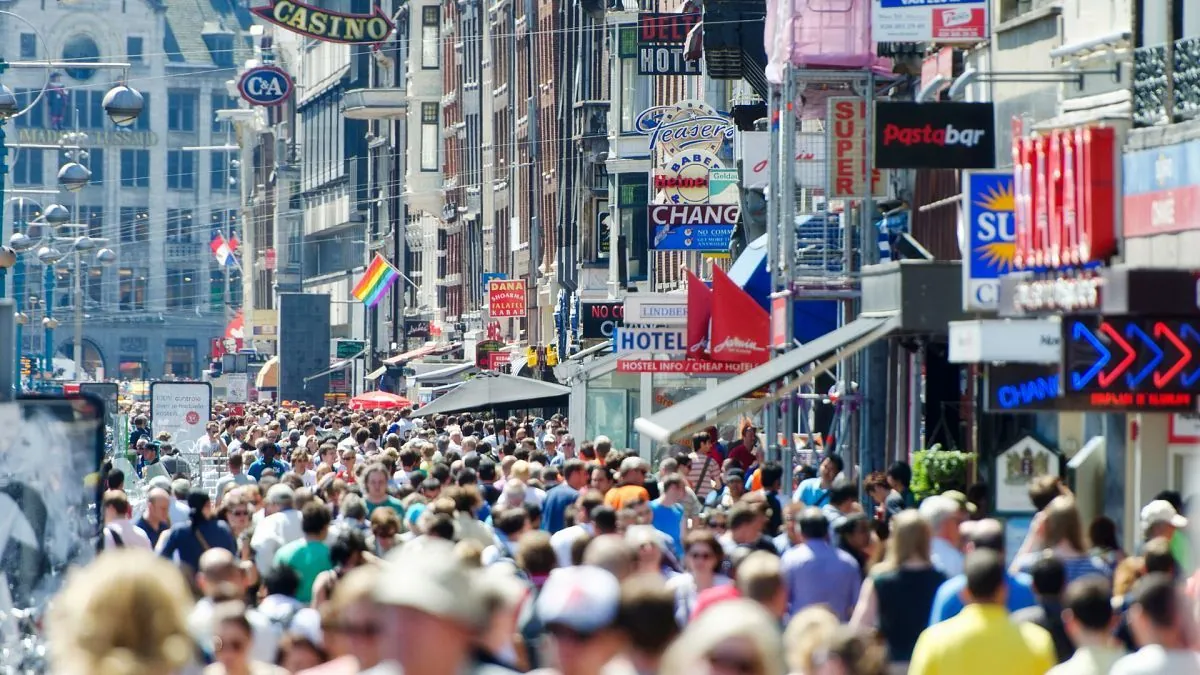In recent months, Europe's most sought-after destinations have witnessed a surge in anti-tourist sentiment, as locals express frustration with the overwhelming influx of visitors. From Barcelona to Venice, residents are voicing their concerns about the negative impacts of mass tourism on their communities.
In July 2023, Barcelona made headlines when protesters armed with water guns forced tourists to flee restaurant patios. The demonstrators carried signs with slogans such as "Mass tourism kills the city" and "Tourists go home," highlighting the growing tension between locals and visitors. This incident is just one example of the increasing pushback against overtourism in popular European destinations.
The tourism industry has rebounded rapidly since the pandemic, with international arrivals expected to fully recover to pre-pandemic levels. According to the European Travel Commission, foreign arrivals in Europe surpassed 2019 levels in the first half of 2023, with tourists projected to spend over 800 billion euros this year. Spain alone welcomed more than 53 million visitors through July 2023, marking a 12% increase from the previous year.
In response to these challenges, cities are implementing various measures to control tourism:
- Venice trialed a 5-euro fee for day-trip tourists between April and July 2023
- Greece plans to impose a 20-euro tax on cruise ship visitors to Santorini and Mykonos starting in 2024
- Barcelona announced a ban on vacation rentals by late 2028
While these measures aim to address overtourism concerns, their effectiveness remains questionable. Rachel Dodds, a professor at Toronto Metropolitan University, notes that many destinations focused on reviving tourism post-pandemic rather than developing sustainable models.
The economic importance of tourism cannot be overlooked, as it accounts for approximately 10% of the European Union's GDP. However, this financial benefit comes at a cost to local residents, who face challenges such as:
- Unaffordable housing
- Strained environmental resources
- Overcrowded public spaces
- Loss of local culture and identity
Christopher Gaffney, a professor at New York University's Tisch Center of Hospitality, points out that tourist-driven gentrification pressures are making cities like Barcelona, Florence, and Lisbon increasingly unaffordable for residents.
"We saw a lot more protests and a lot more people going on the street saying, 'Enough is enough. Go away, tourists.'"
Despite the growing concerns and implemented measures, experts predict that overtourism will continue to be a significant issue in the coming years. The allure of iconic destinations like Venice, with its unique canal system and rich history, remains strong for many travelers.
As European cities grapple with the challenges of overtourism, finding a balance between economic benefits and residents' quality of life remains a complex task. The ongoing debate highlights the need for innovative solutions and sustainable tourism practices to preserve the charm and livability of these beloved destinations for both locals and visitors alike.
